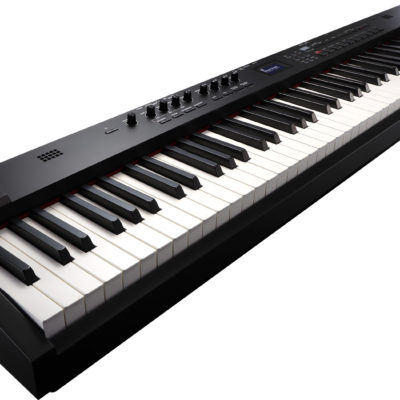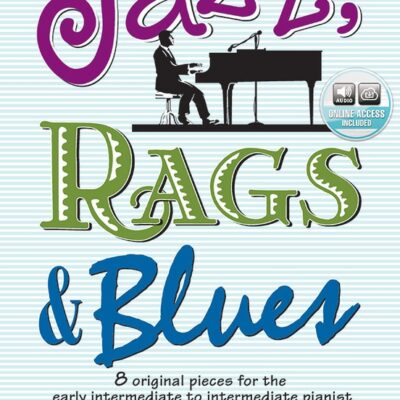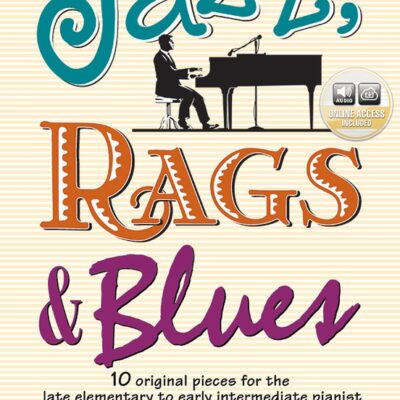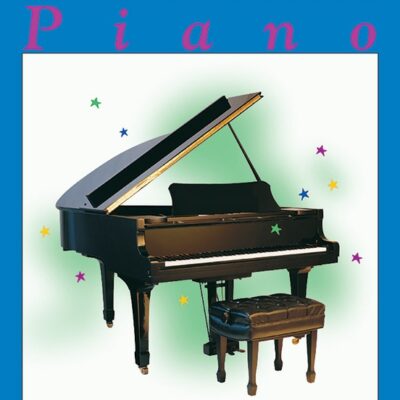Tuning, Maintenance, Proper Care of Acoustic Pianos
Does your piano need tuning? Give us a call 512-458-1933 and based on your needs we can recommend the appropriate piano tuner or piano technician.
How often should my piano be serviced?
- The Short Answer: your piano should be tuned twice a year if someone enjoys playing it, or once a year if rarely or never played.
- Tuning less than once a year is NEVER recommended and will void the warranty on your piano from most dealers and manufacturers.
- When you buy a new or used piano, you should tune your piano 4 times in the first year to help account for temperature and humidity adjustments in its new environment.
- Tuning your piano when you can hear that it’s out of tune is often too late and is extremely hard on the strings, pin block, and soundboard. (Analogy: If you hear your car’s engine grinding and think it’s time for an oil change, it is probably too late!)
- Your piano is an investment. It can bring you and your family a lifetime of music, adding immeasurable joy and beauty to your home. Since it is also such a large investment, it should be maintained with the utmost care. Regular servicing by a qualified technician will preserve your instrument and help you avoid costly repairs in the future.
- Because your piano contains materials such as wood and felt, it is subject to change with climatic conditions. Extreme swings from hot to cold or dry to wet may cause its materials to swell and contract, affecting tone, pitch, and action response or touch. You can reduce the severity of these effects by placing your piano near a wall away from windows or doors that are opened frequently. Avoid heating and air conditioning vents, fireplaces and areas which receive direct sunlight. Your piano will perform best under consistent conditions neither too wet nor dry, optimally at a temperature of 68 degrees F and 42 percent relative humidity.
- Every piano requires a different level of maintenance, depending upon the quality of materials used and the design and level of craftsmanship. Manufacturers can provide general advice on tuning frequency but your technician can give specific recommendations based upon your usage and locale.
- Why do pianos go out of tune? Many people think that the main factor in a piano going out of tune is how frequently it’s played. However, this is not the case. The biggest reasons pianos go out of tune are temperature and humidity fluctuations. A pianos main sound components are the strings, hammers, and soundboard. The soundboard is the wood that supports the strings and resonates with each note, giving it that deep, beautiful sound. The soundboard is not completely flat. It has a “crown,” which means it rises slightly in the center of the soundboard. As temperature or humidity rises or decreases, the soundboard expands or contracts. When it expands, it puts more pressure on the strings, causing the notes to go sharp. With each fluctuation, the balance of the string tension is compromised. Even without temperature and humidity fluctuations, a piano will go out of tune as the piano strings stretch. The tension in each piano string is equivalent to around 38,000 pounds of pressure. Even if the environment is perfect, these strings will stretch over time, causing the pitch to go flat.
What tuning interval do piano makers and professional piano technicians recommend:
- National Piano Manufacturers Association: Professional service is the key. In the first year we recommend that you have your piano tuned four times. This is a period of environmental adjustment for a new instrument, and proper attention is important. After the first year, the piano should be tuned at least twice each year, depending upon the frequency of use and atmospheric conditions. Contact the Piano Technicians Guild for a list of qualified technicians to perform this service.
- Kawai Piano Company: Quality pianos demand quality care. Fine pianos require regular maintenance in three areas: tuning, action regulation and voicing. Tuning is usually required more often than the other service areas, but all three should be a part of any fine piano’s maintenance. Due to string stretching, settling, and the effects of climate, a new piano should receive at least four tunings in the first year. After that, the type of use and the location of the piano will dictate the number of tunings required, but Kawai recommends two tunings per year as a minimum.
- Steinway & Sons (also Boston & Essex): Your Steinway piano was tuned many times before it left our factory. It was tuned to and should be maintained at A440 pitch. This is the internationally accepted standard and the standard for which all Steinway pianos are engineered. Unfortunately, no matter how expertly a piano is tuned, atmospheric variations and the nature of the piano’s construction constantly conspire to bring it off pitch. Your Steinway has been designed and built so that in normal use and under normal conditions it should need only periodic tuning. We recommend that your technician be called at least three or four times a year. You, however, are the final judge and should have the piano tuned as often as you think necessary. To put the matter of tuning into perspective, remember that a concert piano is tuned before every performance, and a piano in a professional recording studio, where it is in constant use, is tuned three or four times each week as a matter of course. Tuning is an art practiced by skilled professionals and under no circumstances should anyone other than a professional be allowed to tune your Steinway piano.
- Yamaha Pianos: New pianos should be tuned a minimum of four times the first year to compensate for the normal settling that takes place. Subsequently, as a matter of standard maintenance, a piano should be tuned at least twice a year. Of course, some musicians will choose to have their own piano tuned more often to satisfy their own personal musical requirements. When your piano needs tuning, consult your authorized Yamaha piano dealer or call a skilled qualified specialist such as a Piano Technicians Guild Registered Piano Technician (RPT).
- Piano Technicians Guild: Your piano is an investment in your future. It can bring you and your family a lifetime of music, adding immeasurable joy and beauty to your home. Since it is also such a large investment, it should be maintained with the utmost care. Regular servicing by a qualified technician will preserve your instrument and help you avoid costly repairs in the future. Because your piano contains materials such as wood and felt, it is subject to change with climatic conditions. Extreme swings from hot to cold or dry to wet cause its materials to swell and contract, affecting tone, pitch, and action response or touch. You can reduce the severity of these effects by placing your piano near a wall away from windows or doors that are opened frequently. Avoid heating and air conditioning vents, fireplaces and areas which receive direct sunlight. Your piano will perform best under consistent conditions neither too wet nor dry, optimally at a temperature of 68 degrees F and 42 percent relative humidity. While pianos generally fall into vertical and grand model categories, each manufacturer selects its own materials and utilizes its own unique scale and furniture designs. Every piano requires a different level of maintenance, depending upon the quality of materials used and the design and level of craftsmanship. Manufacturers can provide general advice on tuning frequency but your technician can give specific recommendations based upon your usage and locale.
What is good tone?
- Tone varies, even among pianos of the same make and model. No matter what its size or cost, any good piano should provide a wide range of tone, from soft and sweet to loud and bright. The tone should be even from the lowest to the highest notes. Most of all, it should sound musical.
- What does the perfect piano tone sound like? There is no single answer, because everyone’s taste varies. Also, certain tonal characteristics are more suited to specific styles of music. A bright, lively tone might be best for jazz, whereas you might prefer a rich and dark sound for Beethoven’s music. There are many different sizes and models of piano available in the market place; you chose your piano because it sounded good to you.
- But a piano’s tone changes with use. As the hammers wear and compact, the tone often becomes too bright and harsh, robbing the pianist of the ability to produce a sweet sound. As parts wear, the regulation (adjustment of the mechanical parts that transmit motion from the fingers to the hammers) becomes uneven, and the pianist loses control over volume and tone. This is most noticeable in quiet playing. A delicate pianissimo passage becomes very difficult or impossible to play, and some keys may not sound at all if played very lightly.
- Aging of the piano’s strings and structure also can diminish its tone.
- ROOM ACOUSTICS — Hard shiny surfaces such as windows and bare floors reflect high frequencies, making a piano sound bright and loud. High ceilings or large adjoining rooms add resonance. Rugs and upholstered furniture soften tone and add warmth.
- THE LID — Both grands and verticals sound louder and brighter if the lid is opened.
- YOU — Your ears are sensitive, and will perceive sound differently if you have spent all day in a quiet office or at a loud construction site.
Does my piano need voicing? Your piano may benefit from voicing if:
- Your piano sounds different than when you purchased it.
- You don’t like the sound even after it has been tuned.
- Tone varies radically from note to note.
- You cannot achieve a range of tone (mellow to bright) at different volumes.
- The piano has lost its ability to play softly.
- Before deciding if a new piano needs voicing, make sure it is well-tuned and well-regulated. Then, play a wide variety of music on it. Most voicing procedures are long-lasting, so give yourself some time to explore the sound of a new instrument before deciding to change it.
- How often voicing is needed depends upon the piano’s usage and its intended audience. Pianos in concert halls and recording studios often receive minor refinement of the voicing before each performance. A home piano may need some initial voicing to customize it to the owner’s taste, then once every one to five years to maintain its tone.
- Your piano and your musical needs are unique — your own schedule for periodic voicing is a matter for you and your technician to decide. To find out how voicing might improve the tone of your piano, ask for a demonstration on one or two notes.
For more info about the care of your piano visit the Piano Technician’s Guild Website





